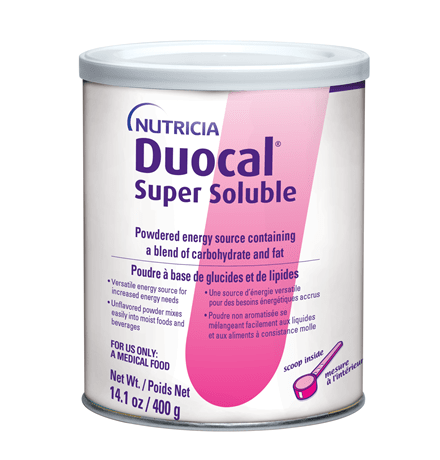03/18/2019
...for the dietary management of conditions where a high-energy, low-fluid, low-electrolytes diet is indicated, protein-restricted diets, disorders of protein and amino acid metabolism, malabsorptive states, modular diets, and catabolic states (e.g. burns, trauma, post-operative stress). It contains a unique dual energy source of carbohydrate and fat (no protein, vitamins or minerals). Duocal® is flavorless and is appropriate for oral and tube feeding. Good to Know Duocal® is: Dairy free Made in a dairy...




